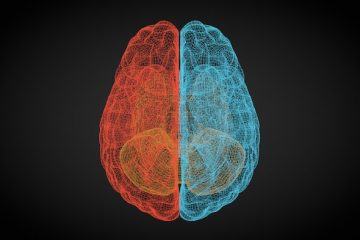Schneider and Fatemi in Scientific American:
 As the bitter strife between left and right, citizen and noncitizen, white and non-white attest, the greatest threat to humanity today goes beyond political and religious divides, economics, and psychiatric diagnoses. It goes beyond cultural conflicts and even the degradation of the environment—and yet it includes all of these. As psychologists concerned with the social and psychological bases of human destructiveness, and as dedicated observers of history, we have arrived at the conclusion that so much of what we call human depravity (“evil”) seems to be based on a principle termed “the polarized mind.” The polarized mind is the fixation on a single point of view to the utter exclusion of competing points of view, and it has caused more human torment and misery than virtually any other factor.
As the bitter strife between left and right, citizen and noncitizen, white and non-white attest, the greatest threat to humanity today goes beyond political and religious divides, economics, and psychiatric diagnoses. It goes beyond cultural conflicts and even the degradation of the environment—and yet it includes all of these. As psychologists concerned with the social and psychological bases of human destructiveness, and as dedicated observers of history, we have arrived at the conclusion that so much of what we call human depravity (“evil”) seems to be based on a principle termed “the polarized mind.” The polarized mind is the fixation on a single point of view to the utter exclusion of competing points of view, and it has caused more human torment and misery than virtually any other factor.
As citizens of very different and sometimes clashing civilizations, the United States and Iran respectively, we also have a unique vantage point on the polarized mind. While so many theories of human destructiveness are associated with regional customs, mores and histories, we have observed the polarized mind at work in widely divergent cultural, ethnic and economic circumstances.
Moreover, we are in complete agreement that the polarized mind is one of the major threats to humanity, not just isolated parts of the world. Our empirically based studies, for example, have indicated that mindlessness—a condition of narrowed perception and reactivity—is a chief and cross-cultural feature of the polarized mind; while (Langerian) mindfulness, an attitude of heightened awareness or presence, is a cardinal feature of the depolarized mind, associated with capacity for discovery, creativity and well-being. It is also associated with a radical transformation of consciousness, but this consciousness cannot flourish until it counterbalances and, to the extent possible, supersedes the polarized mind.
More here.
